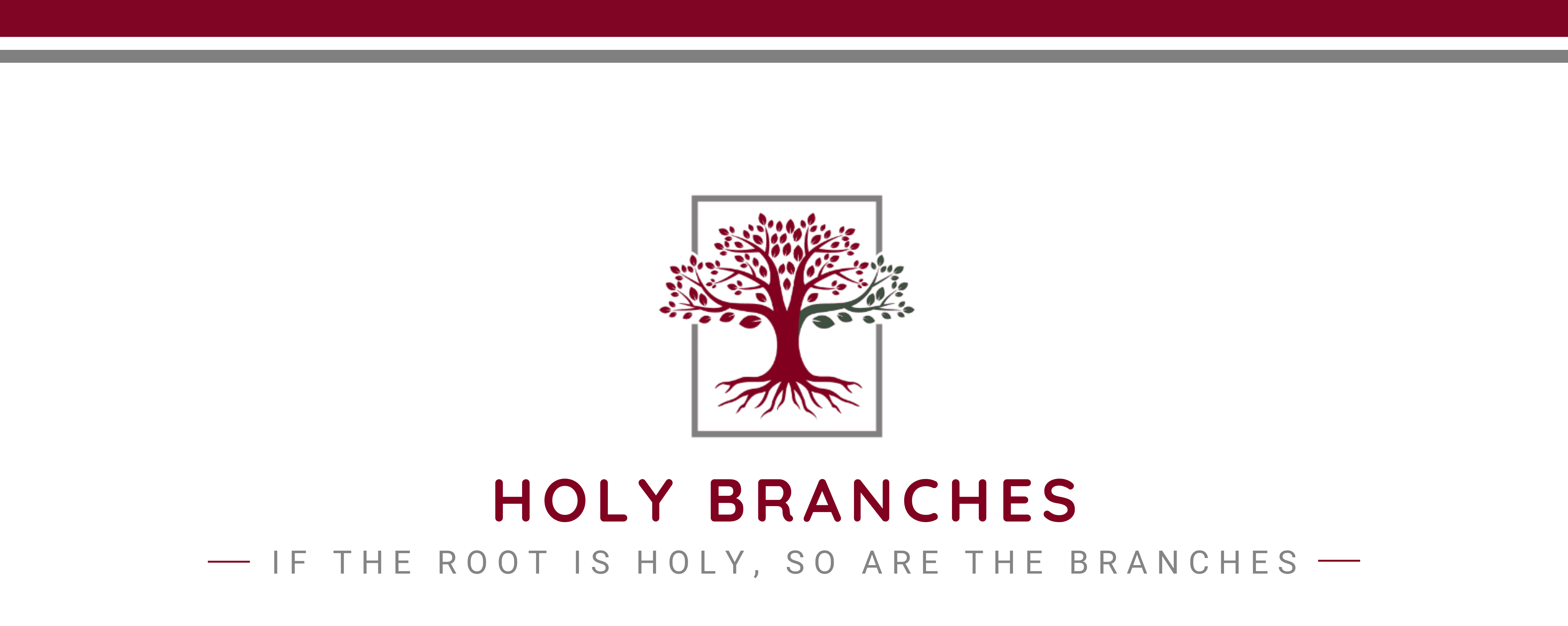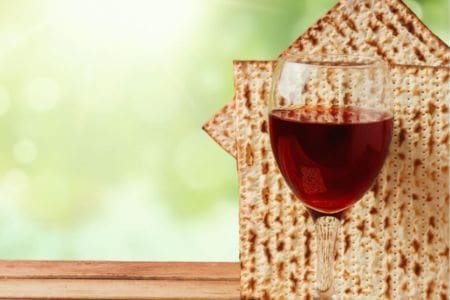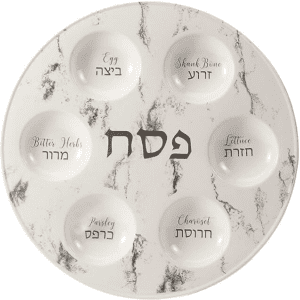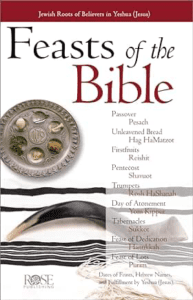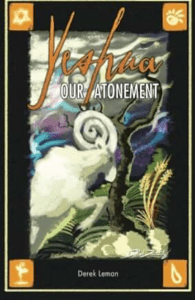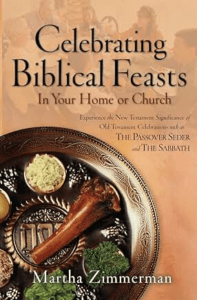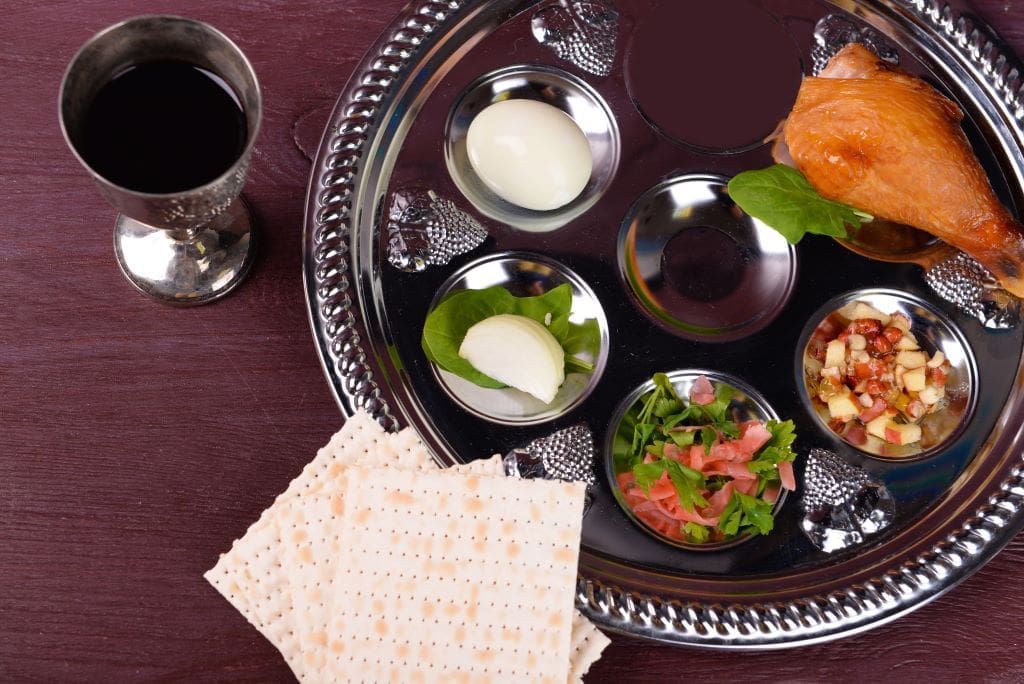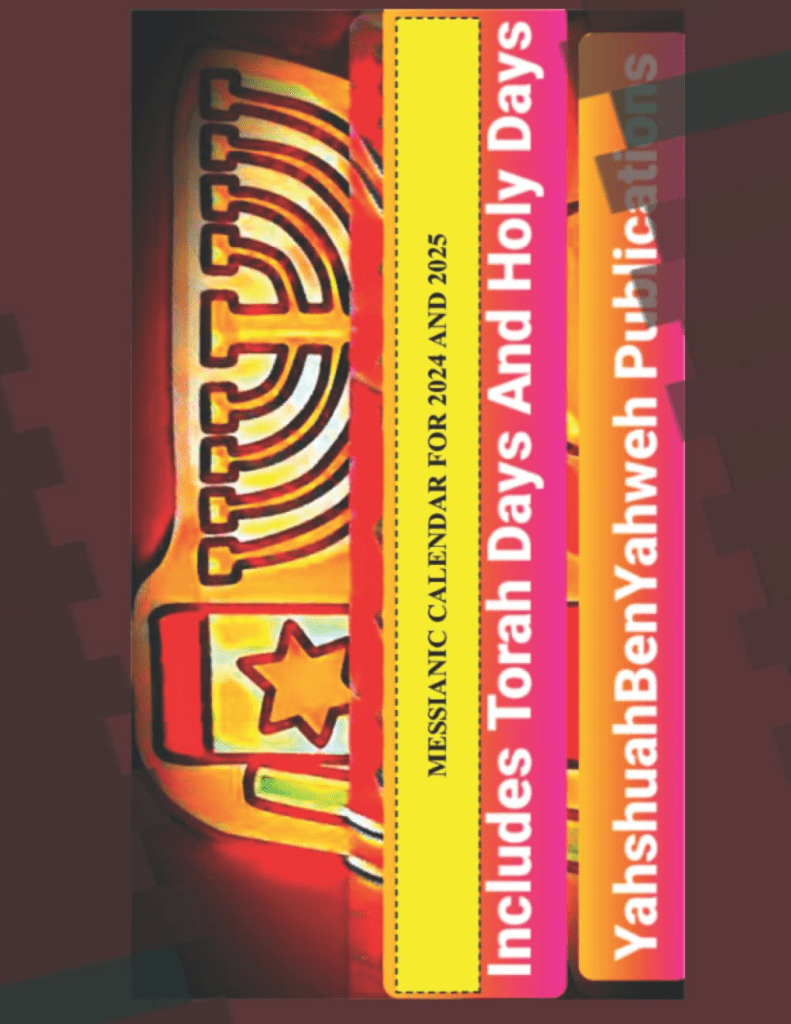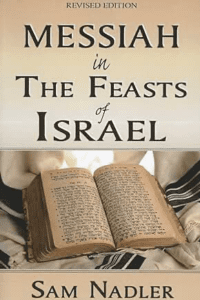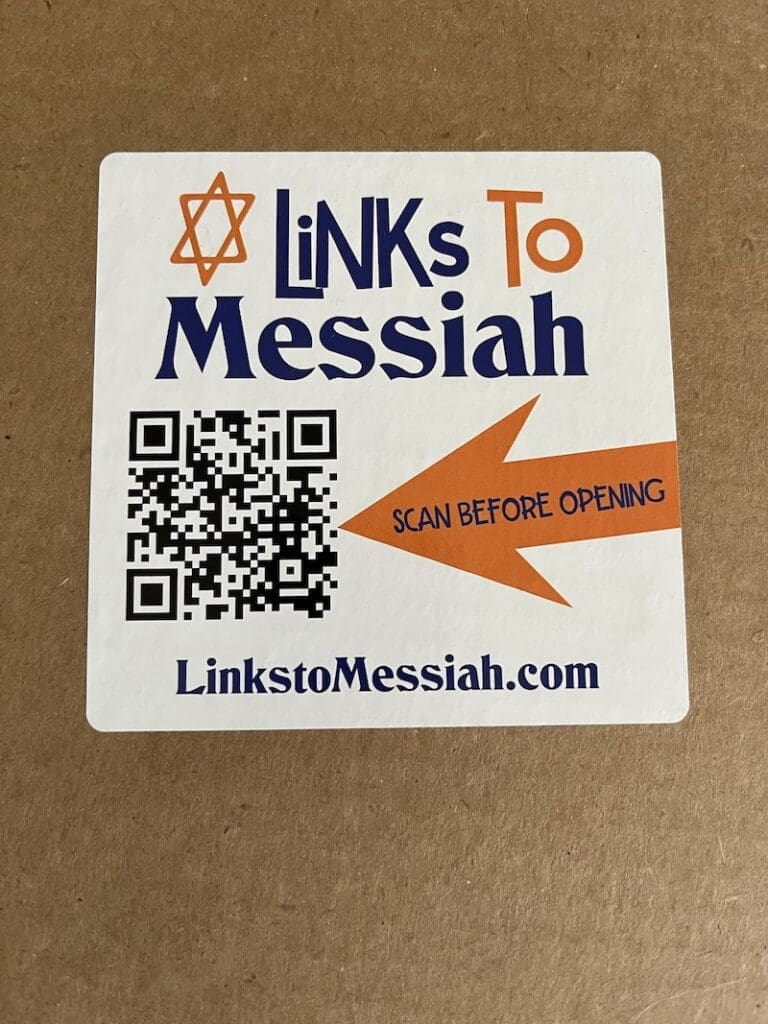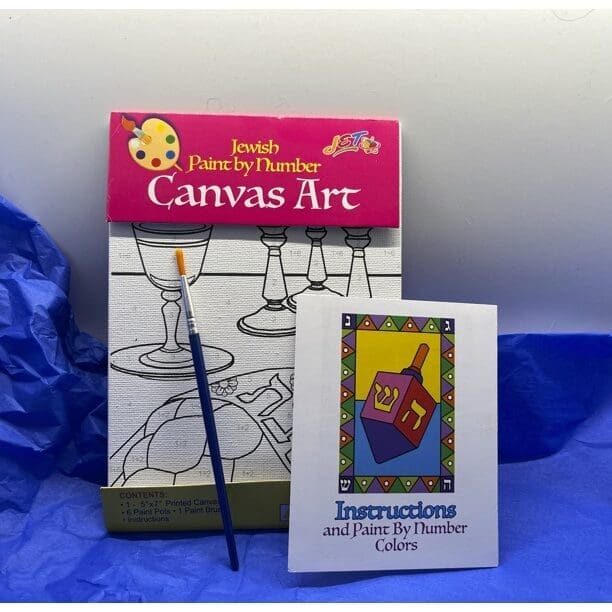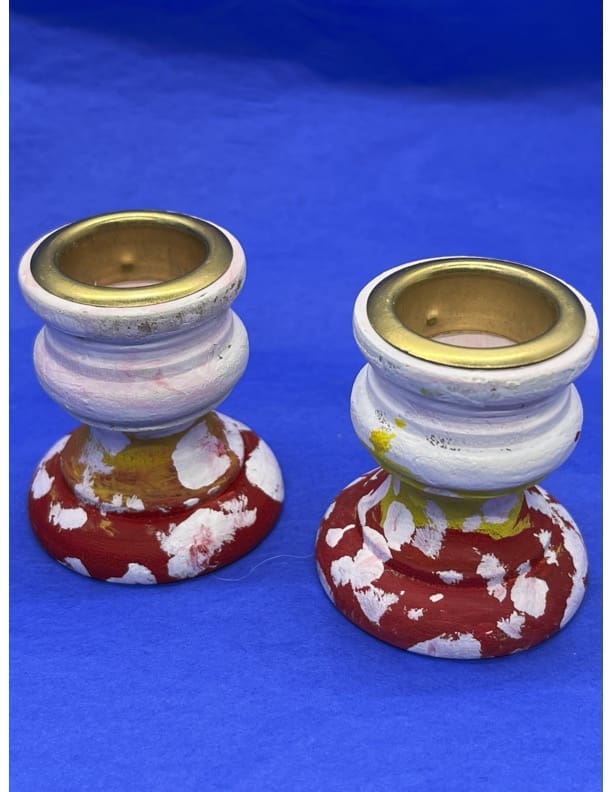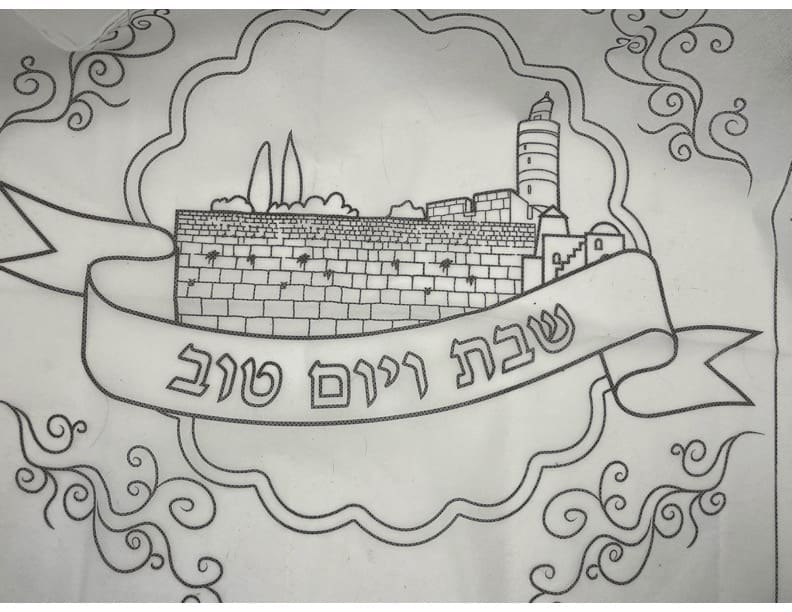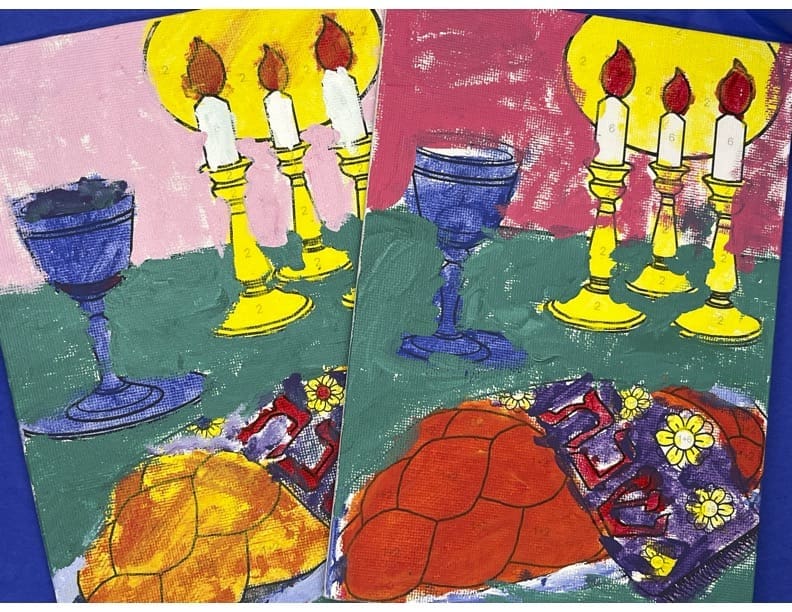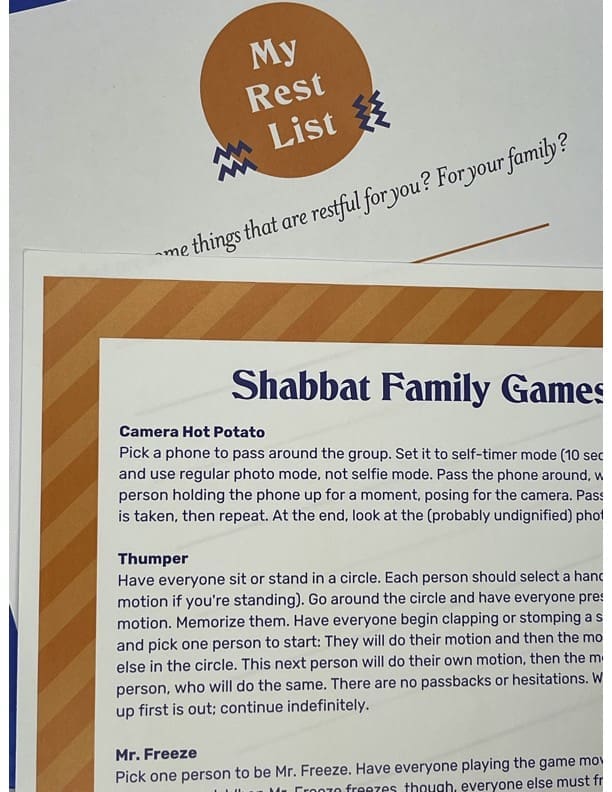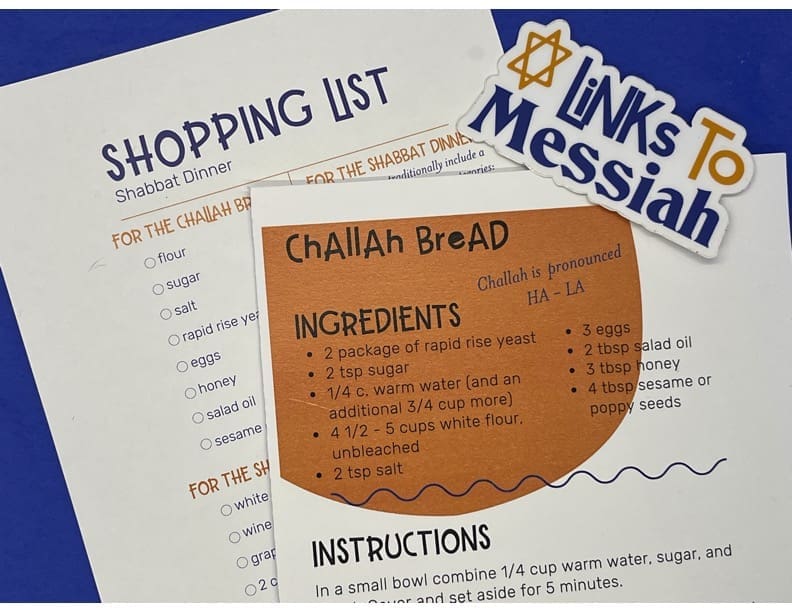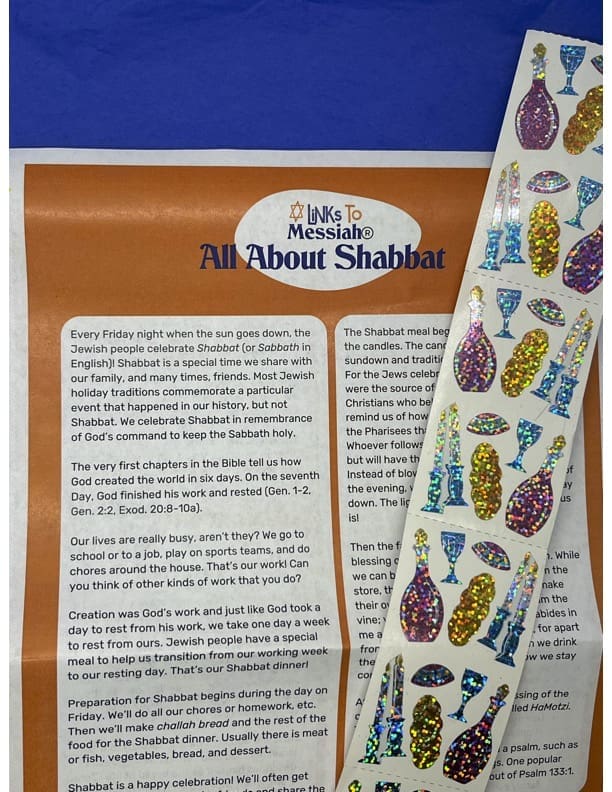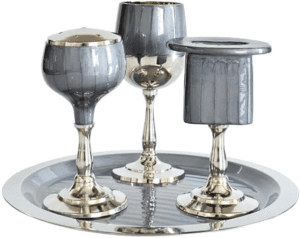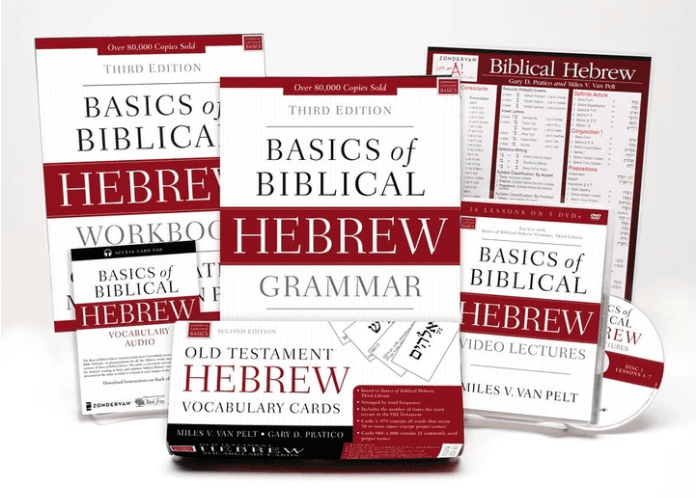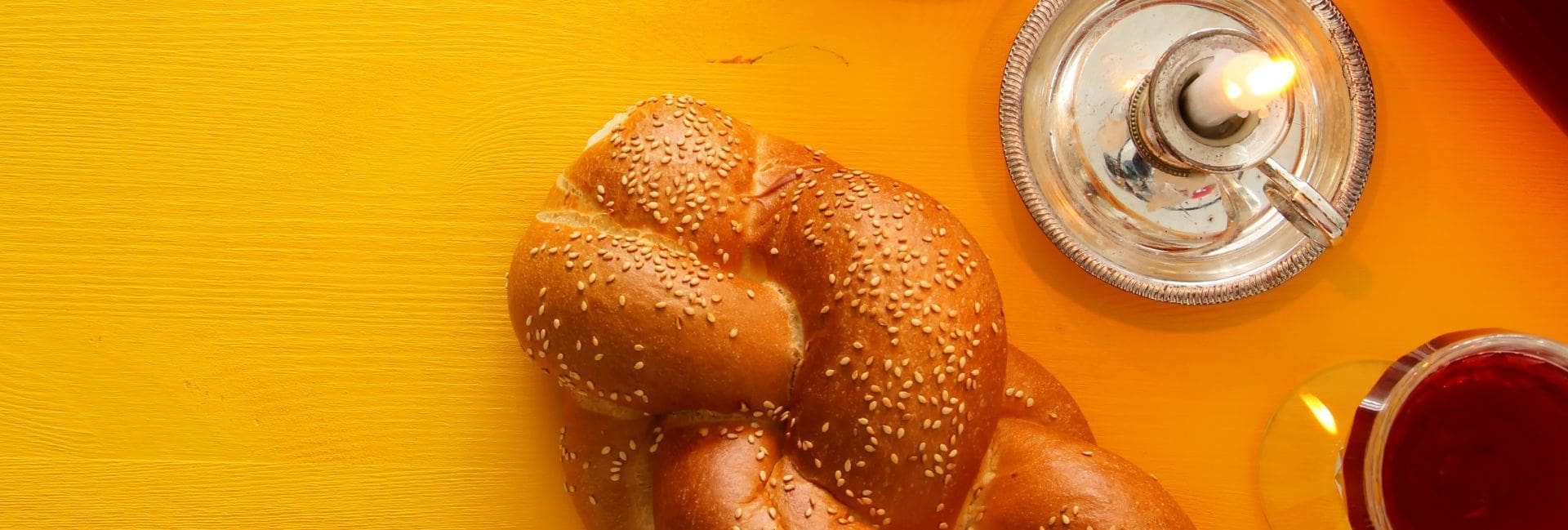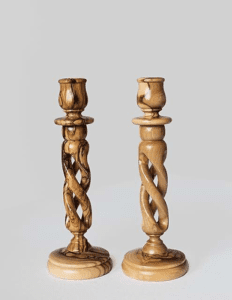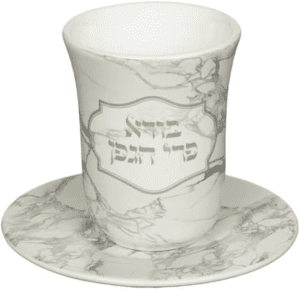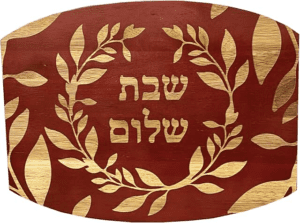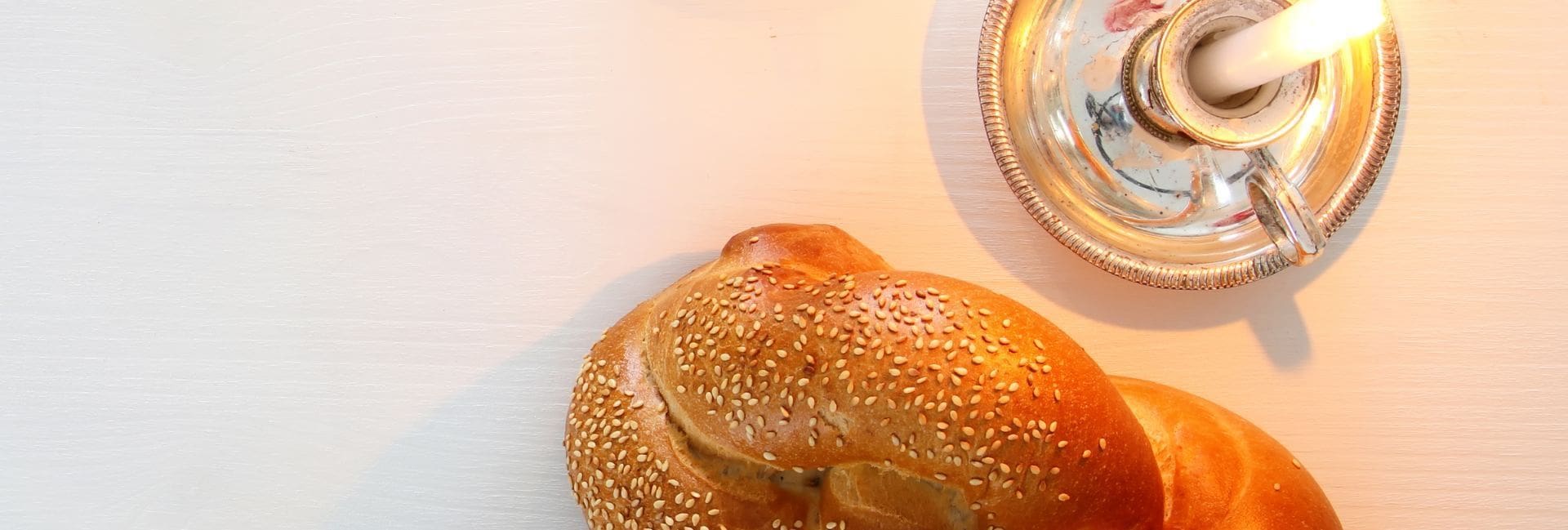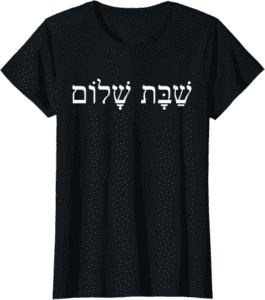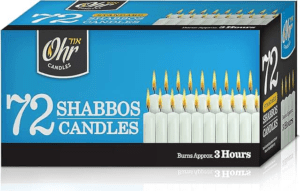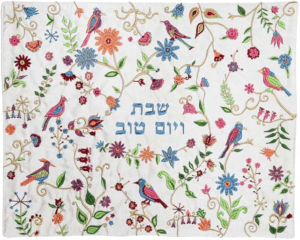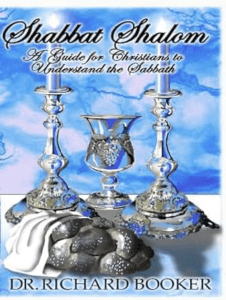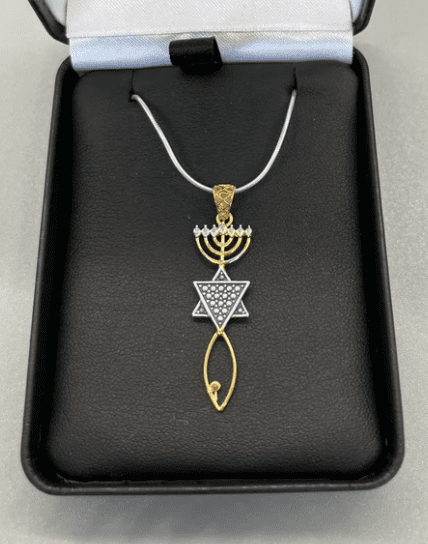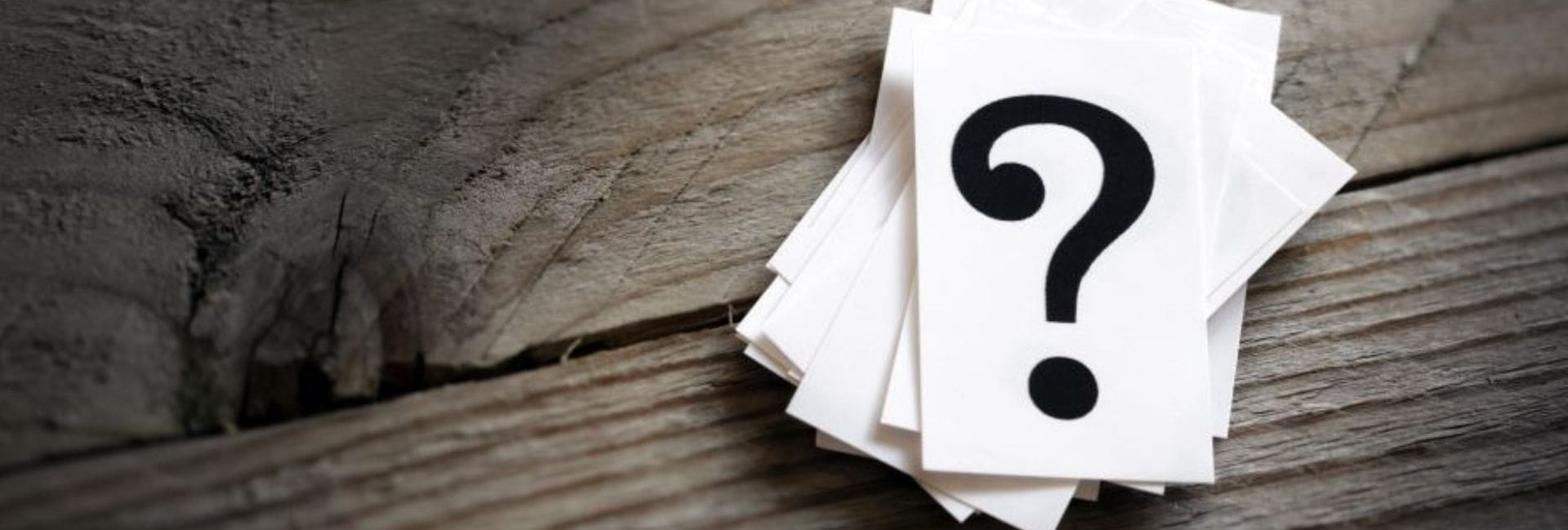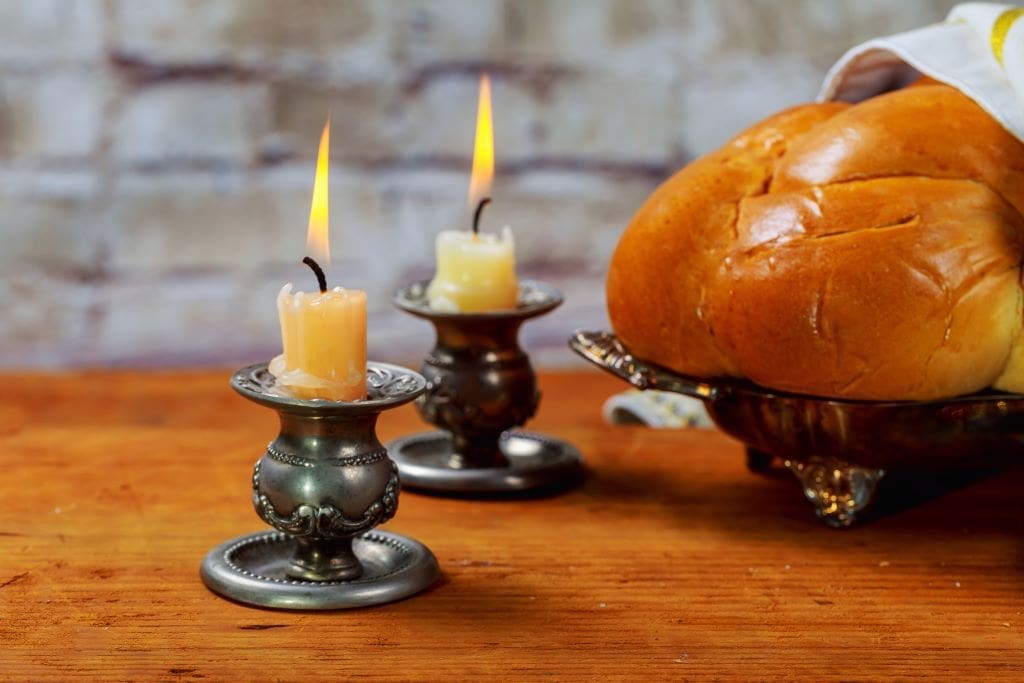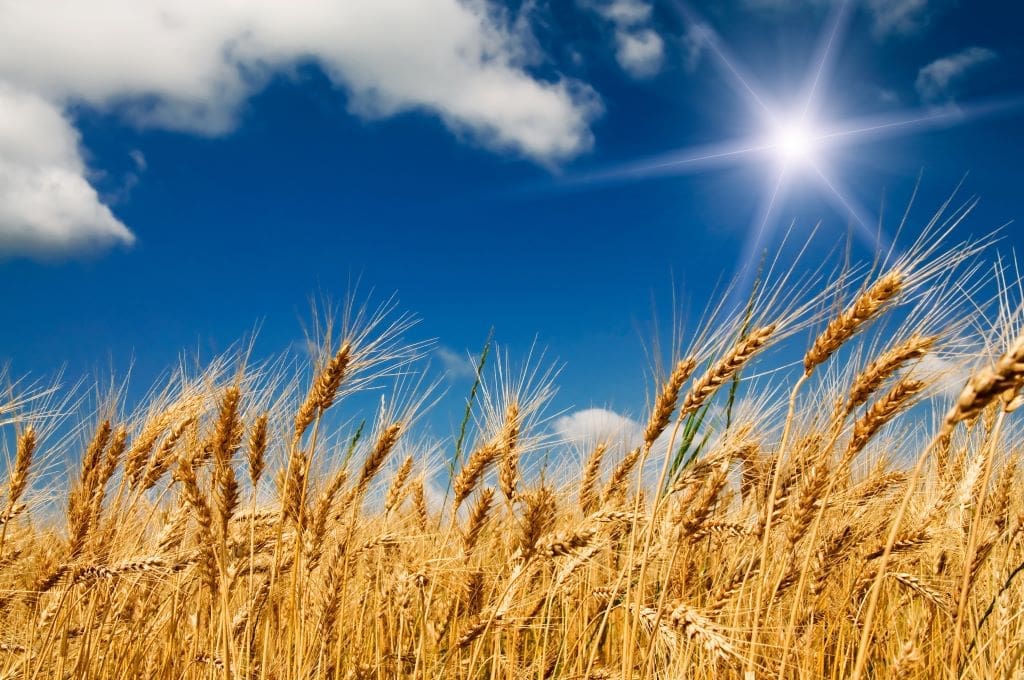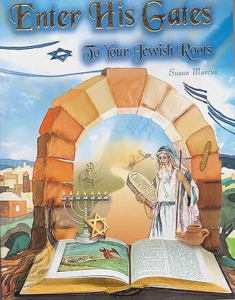How Do the Biblical Feast Days Point to Jesus?
You may have heard many Christians started observing the Biblical Feast Days. You may even have heard them claim these seven Feast Days point to Jesus as our Messiah. Since the connection between the commands to observe these days in Leviticus and our faith in Jesus as our Savior can be confusing, here’s an overview of these important days and how each relates to Jesus and, thus, to our faith.
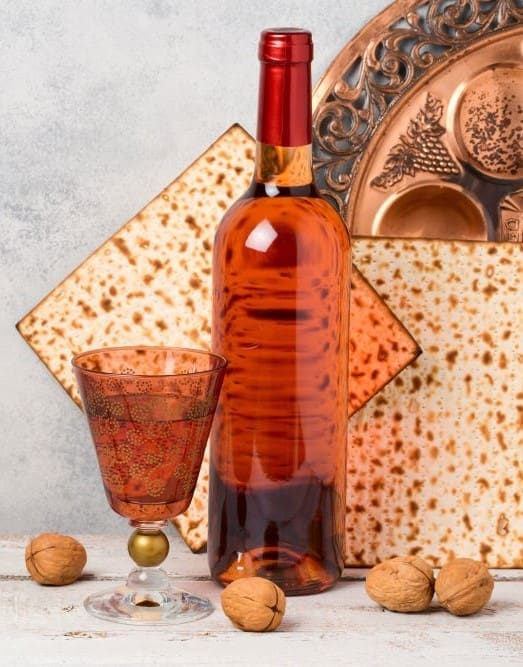
I must add that salvation is not found in keeping the Feast Days or God’s commands. Salvation through works is a significant misconception about the Hebrew Roots Movement and the source of many people’s objection to Christians keeping The Holy Days or following the commands of the Torah. Salvation is found in Jesus alone and is based on the grace we’ve been given through Jesus’s sacrifice, not on our adherence to God’s laws (Eph. 2:8-9 and Titus 3:5). We follow His laws only out of love and respect for God and His commands and because His grace has saved us, not because the obedience itself will save us. On the other hand, although the laws don’t save us, we shouldn’t blatantly disregard the way God wants us to live. We should instead delight in His perfect laws (Psalm 1:2, 19:7, and 40:8)!
This article is a basic overview; the verses I give for each refer only to the command. All these observances are mentioned elsewhere in the Bible as well. Click on the day’s name for a more in-depth explanation of how it relates to the Christian faith and can be celebrated in a Christian home.
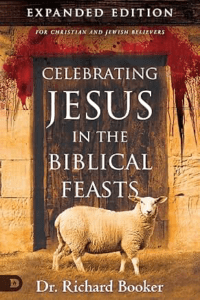
The Sabbath (Lev. 23:3 and Ex. 20:8-11)
Known as “Shabbat” in Hebrew, this Feast Day occurs weekly. The Sabbath is a day to rest and to keep holy – that is, to focus on our God and Savior.
Jesus said that he is “Lord of the Sabbath” (Matt. 12:8 and Mark 2:28). In addition to revealing his divine nature in this verse, having been there at the creation of the universe, Jesus took part in the creation of the Sabbath when God first declared it (John 1:1-5, Gen. 1:26 and 2:3).
Jesus is our “Sabbath rest” (Hebrews 4). As believers, we can rest in our salvation and observe the Sabbath just as God did. We should strive to align our behavior with what God desires of us despite and because of our salvation. However, we can rest in the mercy and grace we’ve been given and approach God with no shame after repenting and turning from our sin.
Passover (Lev. 23:5 and Exodus 12)
“Pesach” in Hebrew, this Feast is a remembrance of the Passover and the resultant exodus from slavery in Egypt. During the Passover, the blood of the Passover Lamb on the doorposts of the Hebrew people saved them from the final plague of the death of the firstborn.
John the Baptist prophetically calls Jesus “the Lamb of God that takes away the sin of the world” (John 1:29). After Jesus’s crucifixion and resurrection, Paul refers to him as “our Passover” (1 Cor. 5:7). What these two men realized is that the sacrifice of the Passover Lamb that saved the Hebrew people foreshadowed the sacrifice Jesus made that saves us today!
Jesus also tells us he’ll celebrate The Passover with us again someday (Mark 14:24-25 and Luke 22:15-16). Wow! What an exciting Feast to look forward to!
Unleavened Bread (Lev. 23:6-8 and Exodus 12:15-20)
Also called “Chag HaMatzot,” this week-long Feast occurs during the week of Passover. It’s generally a time to remember the Passover further. Being in a hurry to leave Egypt when Pharaoh finally allowed them to, they didn’t have time to leaven their dough and had to cook and eat unleavened bread.
The command for this Feast is to remove all leaven (also called “chametz”) from one’s household and to eat none for seven days. “Leaven” or yeast is a biblical reference to sin or corruption. When something is described as “unleavened,” it’s pure or uncorrupted.
For example, when yeast is placed in bread, it spreads until it is in the entire batch. Think about people you know who have let a minor sin enter their lives; likewise, it spreads and spreads and sometimes ends up ruining lives. Think about a married man who friends an old girlfriend on social media and what damage this tiny action can lead to.
Jesus, our “bread of life,” was able to be the only atoning sacrifice for our sin because he was “unleavened” or uncorrupted by sin. Having adhered to the entire law (Torah), his perfection made his crucifixion the one-time blood sacrifice that could cover the sins of all mankind forever.
In 1 Cor. 5:6-7, Paul explains that a bit of leaven leavens the whole lump. Even if we lead perfect lives, we cannot achieve perfection, causing us not to be able to experience true communion with God. Having to clean out all the leaven in every nook and cranny of our homes reminds us that even the tiniest bits of sin left in the nooks and crannies of our hearts must be dealt with. If not, they will indeed “leaven the whole lump” and spread throughout our lives and those around us.
How blessed are we? Jesus has dealt with each crumb of leaven in our hearts so that we can approach God pure and “unleavened” as well!
First Fruits (Lev. 23:9-14)
Called “Yom Bikkurim” (the Day of First Fruits) or “Reshit Katzir” (beginning of the harvest) in Hebrew, this Feast Day is the dedication of the future harvest to God, which was demonstrated by waving a sheaf of green barley before God. It begins the 49-day countdown to The Feast of Weeks, the next Feast. The command also includes sacrificing a blemish-free male lamb as well. However, this part can only be done with the Temple.
Here’s another Feast Day that Paul sheds light on for us. In 1 Corinthians 15:20-28, he tells us that Jesus is the “first fruits” to both the dead and those “in Christ” when Jesus returns to Earth. Just as the First Fruits Feast offerings looked forward to the future harvest, so did Jesus’s resurrection. He came to save us and will raise the dead and rule the Earth when he returns! What a glorious day that will be!
Feast of Weeks (Lev. 23:15-21)
“Shavuot,” in Hebrew, means “weeks,” and is another name for this Feast. It’s more commonly known among Christians as Pentecost (which means “fifty”). It marks the 50th day after the original Passover, the day God gave His law (Torah) to His people on Mount Sinai. It’s called the Feast of Weeks because the counting was to be done in weeks. The command says to count seven Sabbaths (seven weeks) from the Day of First Fruits until this Feast.
Before his ascension into Heaven, 40 days after his resurrection, Jesus foretold what would happen on the day the apostles celebrated The Feast of Weeks. In the first chapter of Acts, Jesus tells them to stay in Jerusalem and wait for the promised Holy Spirit.
Sure enough, just as he said, the apostles were celebrating the Feast of Weeks ten days later, thanking God for giving His Word on Mount Sinai. During this celebration, they received the Word in their hearts just as was prophesied (Jer. 31:31-33 and Joel 2:28-29). While they thanked God for His Word, His Word entered their hearts as the Holy Spirit indwelt them.
Jesus said that he had to leave so that they could receive the Holy Spirit, and that’s precisely what happened. The Word was given on Mount Sinai, then lived among us, personified in Jesus, and then the Word was given to each believer personally through the Holy Spirit!
Feast of Trumpets (Lev. 23:23-25)

Commonly called Rosh Hashanah due to its designation as the first day of the Jewish New Year, this day is called Yom Teruah in the Hebrew Bible. The command says it is a Sabbath, and trumpets (or shofars – rams’ horns) are to be blown, along with a sacrifice brought to the Temple. Biblically, it’s not the New Year but is a method of numbering and counting the years.
Generally, the creation of the universe is celebrated, and it marks the beginning of the “Ten Days of Awe,” which continues over the year’s remaining Feast Days. This ten-day period is a time of introspection where each person evaluates their life, repents for sin, and resolves to live more according to God’s will.
We must first understand the “Teruah” to fully understand this Feast. More than just the noise of a trumpet blast, this was the same call made by the priests when the wall of Jericho fell. It’s the one used when King David returned the Ark of the Covenant to Jerusalem, and it will be the one heard on “the Day of The Lord” (Zeph. 1:16). This type of trumpet blast (or even shouting) is like a call to war or a celebration of a victory of God or His people.
The Feast of Trumpets is when we anticipate Jesus’s return to Earth. Jesus gives a chilling explanation of this day in Matthew 24. He says that after the sun, moon, and stars are darkened, and the powers of the heavens are shaken (woah…), the trumpet call will bring his elect from the Earth’s four corners. “His elect”? That’s us, Christian Brothers and Sisters! And so we remember to blow our trumpets yearly on The Day of Trumpets. And in the meantime, we wait… And listen for the trumpets…
And in the meantime, we wait… And listen for the trumpets…
As we think of a new year beginning and prepare our hearts for Yom Kippur, we can focus on repentance and re-aligning our lives with God’s will. An honest and prayerful examination of our lives can highlight the sin we must deal with and the changes we must make.
This process will naturally bring us to a state of thankfulness for our Savior. We can repent, turn from our sin, and know that his unselfish sacrifice on the cross covers it.
Day of Atonement (Lev. 23:26-32)
Also called Yom Kippur (the Day of Coverings), this was the only day of the year that the high priest could enter the Holy of Holies and make a sin sacrifice for God’s people. He was the only one who could stand between them and God to make atonement, and only on this day, according to specific procedures. Without the Temple to make these sacrifices today, the Jewish people see this as the day that God writes our names in the Book of Life or the Book of Death, depending on which we deserve.
As Christians, we see this day a bit differently, of course. While focusing on repentance, we can also celebrate and be grateful for the sacrifice that made atonement for our sin, Jesus. He is also our high priest (Heb. 4:14-15 and 8:1-6) and is therefore qualified to make atonement for our sins. Furthermore, if we profess Jesus as our Savior, we know that our names are already written in the Book of Life, so we can thank God for that!
Prophetically, we can also look forward to the day when Jesus returns as judge. Although one judgment was carried out when Jesus was crucified, there remains a Judgement Day for those who have rejected him. There are also a few places in the Bible (Matt. 12:36-37, 1 Cor. 3:13, and 2 Cor. 5:10) indicating that, as Christians, our actions will be judged as well (although not with gravity equal to those not in Christ). Because of this, we all must closely examine our actions and the fruit of our lives and further align with God’s will.
Feast of Tabernacles (Lev. 23:33-36, 39-43)
This Feast is also referred to as the Feast of Booths or Sukkot (“booths” or “tabernacles” in Hebrew). It’s traditionally a time to remember God’s provisions for His people and His dwelling or “tabernacling” with His people. The command includes living in a temporary dwelling for the week.

Many Christians use this time of the year to celebrate the time Jesus spent tabernacling with us, from birth to resurrection. Sukkot is a time to celebrate God’s dwelling with His people. Jesus was precisely that! He is God and came to Earth as a man to walk with us!
We can also thank God for His provision and blessings during this time. Yes, He gives us more than we need in a material sense, but He also does in a spiritual sense. Being the sinful people we all are, we’re separated from God and in dire need of a way to Him that we can’t provide ourselves. Although we’re undeserving of it, God chose to give us a second chance. He sent Jesus so we could approach God even though we were unworthy. That’s the best blessing of all!
Many places in the Bible foretell a time when God will dwell with us again. The Feast of Tabernacles is when we can look forward to the Wedding Feast in Revelation. Jesus—the groom—will finally be united with us, his people—his bride—and there will be a great, joyful Wedding Feast! What an event to behold! I can’t wait, can you?!
All these Feasts point to Jesus in powerful yet unique ways. Bringing these traditions into your Christian faith will provide reminders of the part we all have in God’s Kingdom and of our eternal Savior and what he’s done in the past, what he’s doing right now, and what he will do in the future. Celebrate Jesus throughout the year—on the Feast Days and every day!
